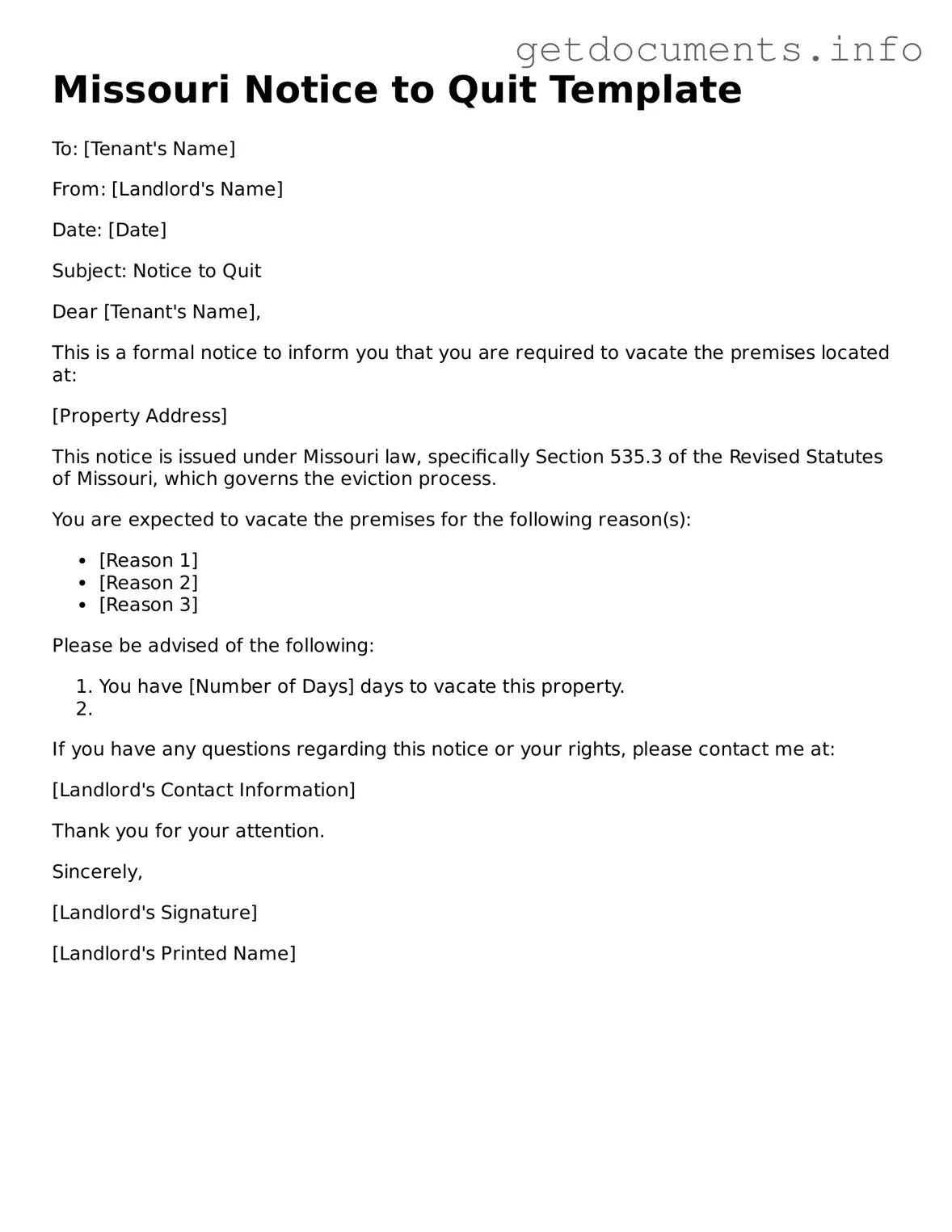Free Notice to Quit Template for Missouri
The Missouri Notice to Quit form is a legal document that a landlord uses to inform a tenant of the need to vacate a rental property. This notice is typically issued when a tenant has violated the terms of their lease or has failed to pay rent. Understanding the purpose and proper use of this form is crucial for both landlords and tenants navigating the eviction process.
For those looking to fill out the form, click the button below to get started.
Access Notice to Quit Editor

Free Notice to Quit Template for Missouri
Access Notice to Quit Editor
Got places to be? Complete the form fast
Fill out Notice to Quit online and avoid printing or scanning.
Access Notice to Quit Editor
or
⇩ PDF File
